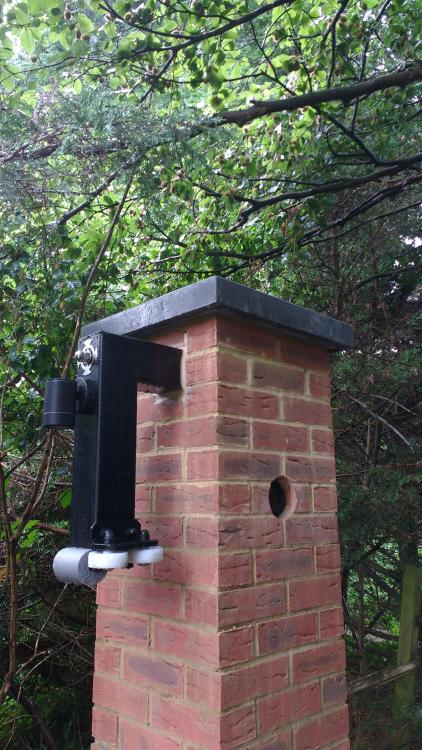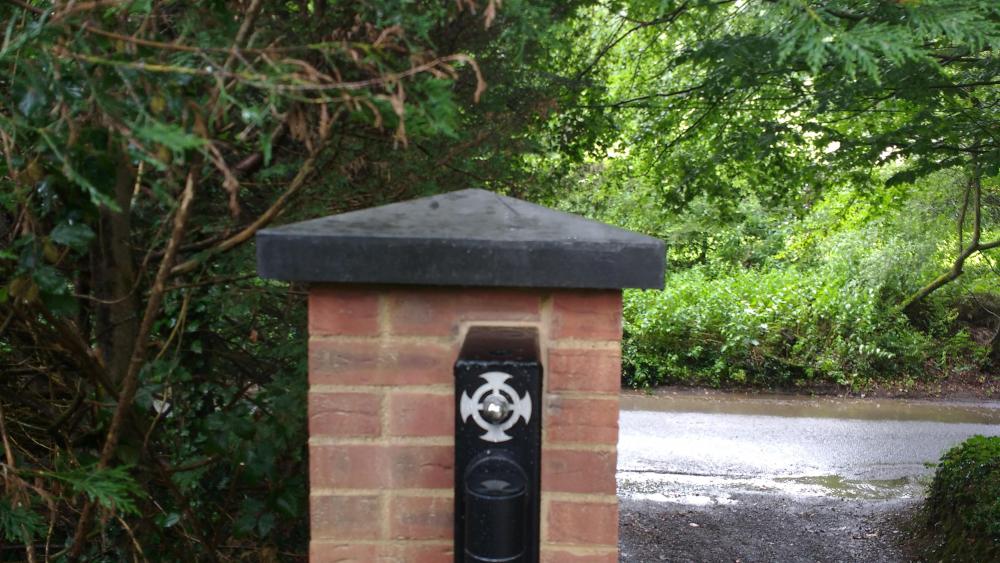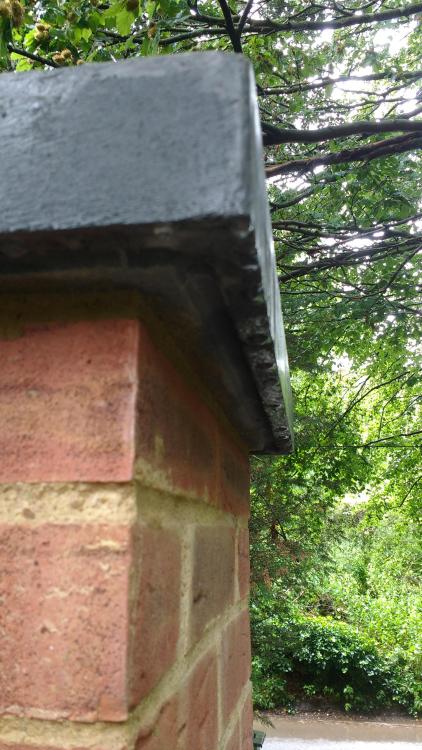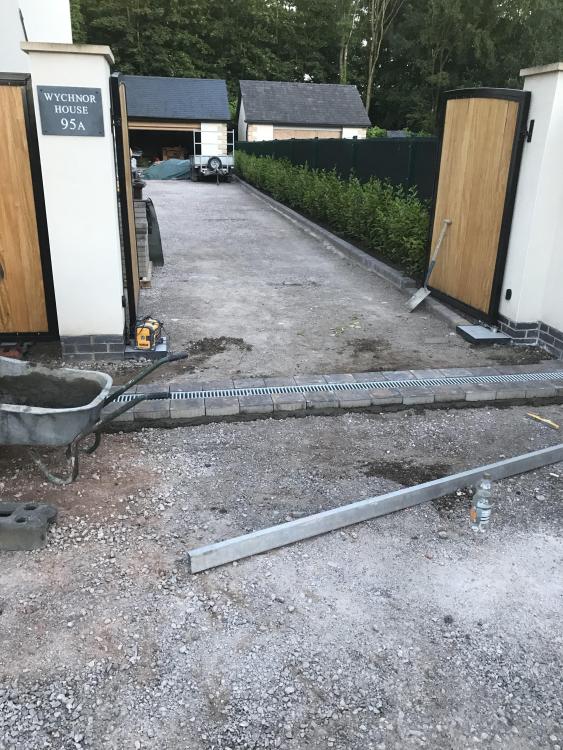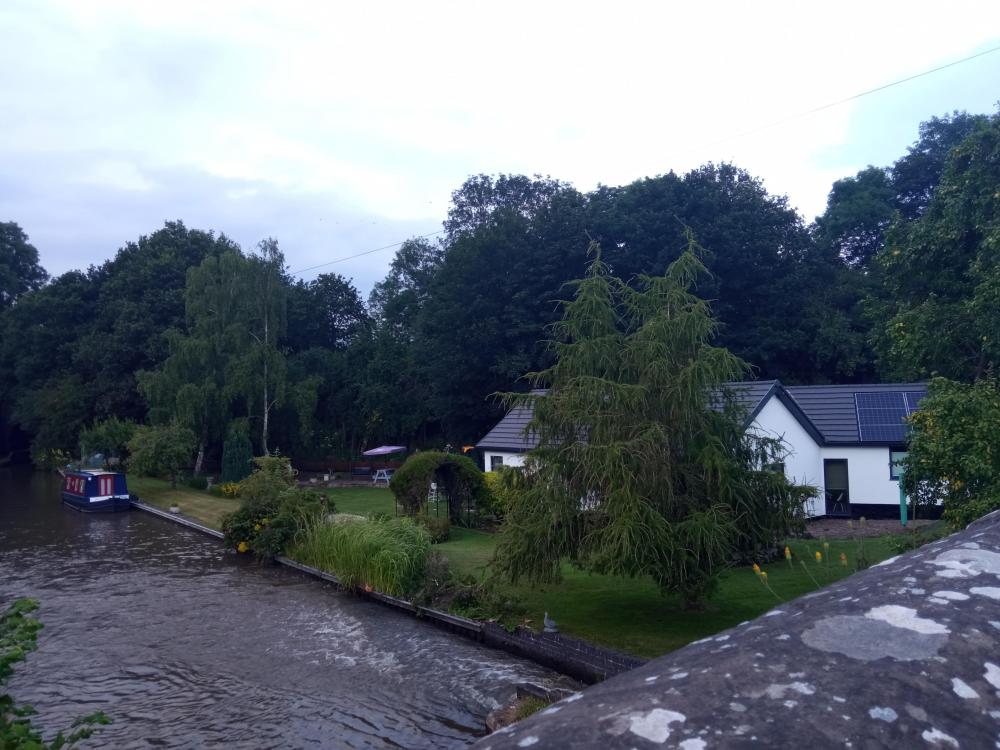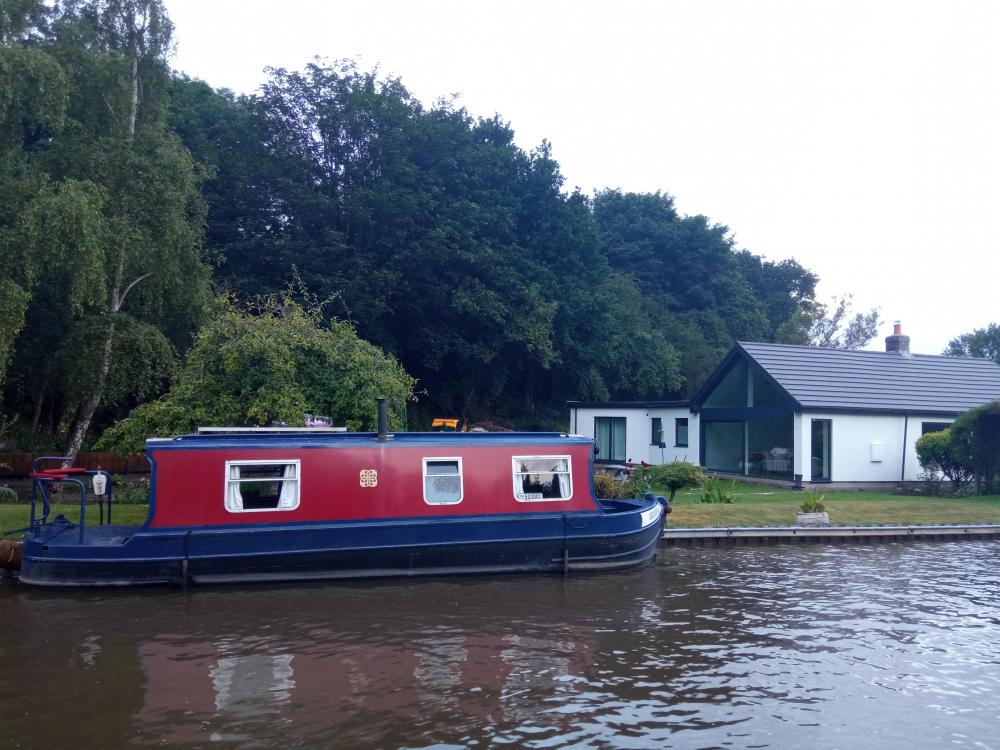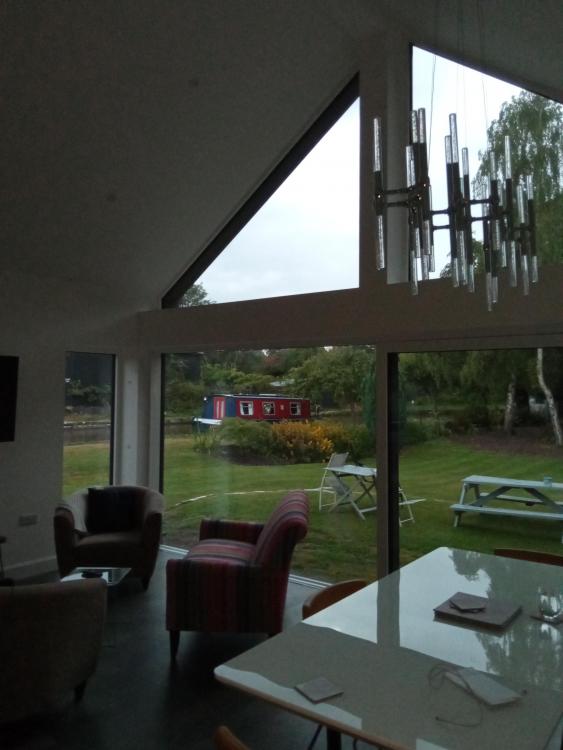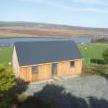Leaderboard
Popular Content
Showing content with the highest reputation on 08/01/21 in all areas
-
I'm pleased to say finally we are insulated and have render. Credit to our plasterer who has been brilliant and done an amazing job. The colour is Ecorend marble white so is a very clean white looking colour rather than the yellow/grey looking off whites we saw but we like it. The plasterer came in the early hours before the sun as it was blinding trying to apply it in direct sun over the past couple of weeks. Once we have the aggregate round the house and plants etc I don't think it will look too crazy. Waiting for the anthracite guttering to be fixed on and some of the plastic work and roof edging needs some TLC and if I hear the word 'mastic' again - which seems to be the answer to everything cladding and plastic related I'll strangle the builder. Also need fan covers attaching and our lights putting on which should be next week. Thought I'd share these pics. We have started to apply Bitumen paint on the bricks below DPC and this has smartened up the area where the bedroom/dressing room is where it is the split level inside with steps and rooms are higher than the rest of the house. We haven't finished all the way around yet. Loving the front door now with the render. Despite it being black in a silver frame and the anthracite windows we think it looks fine. This is the back of the house into our utility with the stable door. The hose pipe isn't on the render it's fixed onto a galvanised post. Of course we still have lots of garden work to do, no double garage and no dressing room etc but prices so high we have shelved things for now. Probably the most exciting non-house related news is we bought a boat which took a chunk out of the house budget!2 points
-
Neatly cut the boxes with a multitool so you don't lose too much of the pb facing paper. Paint the cut edges with PVA and allow to dry ideally. It really strengthens the hole and stops it breaking up. Then fit the box. Who's got time to do that though unless you're doing it yourself! ?2 points
-
2 points
-
After three visits to our plot (two ten day trips and one long weekend) we have made quite a lot of progress with building the workshop - in no small part thanks to this site and the generosity of members in sharing wisdom and advice. I've learned a huge amount, and am delighted with what we have achieved so far. Below are some photos of the work in progress which largely speak for themselves. We had help in the first tranche from my son and his friend who had finished Uni for the summer, as well as from my parents who live nearby. The second and third visits were just us with my parents, when they were not playing bowls. We have a new-found admiration for builders and others who have manual jobs - the stamina needed to perform physical work continuously over an 8 hour day was a shock for us desk-jockeys. And the weather gods were not always kind - the first visit saw torrential rain and high winds for the first five days, and our most recent trip was during the heatwave where we were working in 34C heat for much of the day. Noah's Ark to Raging Inferno. Spending time on the plot has been useful from the point of view of considering the design of the house, and how life might be for us living there. We realised that the south-facing aspect means fierce and unmitigated sunshine, so we will need to ensure we have sun-shading in some form over the balcony to stop us from frying in the middle of the day, and to reduce solar gain through the bifold doors. Having seen the distant views towards Dartmoor from the roof of the workshop (the equivalent of our first floor of the house), we have amended the window in the second floor from a velux to a dormer in order to create a corner where we can sit and take in the views. This will be part of the minor amendment application that goes in shortly. Here are the photos of the work in progress... (many of the photos I have are in HIEC format, so I wasn't able to upload) 3582792D-760C-40AF-8AFE-0403A9C4A3D8.mp4 BC9D98F1-B908-4BDC-BE64-36BE05B11D14.mov WhatsApp_Video_2021-06-10_at_21_54_37.mp41 point
-
TBA I don't know, my friend who has a licence takes my stuff down there for me and he gives me a receipt - I do know they no longer deal in cash so I would be ready for both an account and some ID.1 point
-
Make sure you get a decent cowl fitted that both keeps the birds out and also the water out.1 point
-
My Evolution electric whacker seemed to cope OK with the hardcore I graded through a piece of mesh to give 40mm down to dust. That's only 5kN from memory. Saint-Nazaire was a good sub base btw...I'll get me coat!1 point
-
If your going to be using it as a temporary drive He needs to hire a drive on roller It will crush the big stuff like eggs Our hardcore was just like yours I hired a ride on roller 50 quid dropped off at 8 collected at 12 I used a couple of ton of 20 mil to dust to fill in the any. It It was used for van and 20 ton lorrys for twelve months before we paved it I had to use a breaker to put the gate boxes in1 point
-
My light weight compactor will handle type 1 ok, but not bits 100mm by 200mm as in your photo. M1 point
-
1 point
-
If the surface is to be left exposed then the areas of fines will wear away easily. Like driving on a beach. The mix is important. In Ministry of Transport type 1 fill the different grades are blended at source for maximum when compacted. This material is known as subbase.1 point
-
I understood to make a good surface the crushed concrete should be mixed fines, small and large items. The maximum size of the crushed concrete should be no more than half the thickness of the layer to be compacted and the fines should fill all the voids when compacted avoiding the fines in the ground below rising up to fill the voids causing the area to sink. I usually compact the filling until no more fines will go in. the fines hold the larger pieces from moving. Good luck. M1 point
-
I would like to see him use road planings - fines could mean black sand so you want to see a sample 0.5m2 trial patch first1 point
-
A standard twin wall insulated flue, has the inner joint overlapped such that if there is any condensate, it will run down into the stove (and evaporate again) rather than run out at the joints and down the outside of the flue.1 point
-
Unless your tight for headroom, you can put celotex between joists and then 25 or 40mm celotex inside, over the joists, fixed with battens, then plasterboard is fixed to the batons. I had 150mm between joists, 40mm over the joists, 25mm batons and 15mm plasterboard to get to about 0.13 W/m2k I think.1 point
-
I got away with 25mm insulated pb over 120mm kingspan on mine. You might want to have a look at gapotape - came across it just when I had nearly finished doing the room - will make the process a lot easier and quicker as the trusses will certainly have bowed slightly so none of the rips are true. Gapogroup ltd - Gapotape, Insulation (gaposhop.com)1 point
-
You're a lone voice I think. The heights are great imo and very practical. I tried to get my parents to let me rewire their place but my Dad wouldn't hear of it because of the mess etc. Now, riddled with arthritis he has to over reach down to plug things in. He broke his elbow on his dominant arm and can't lift it too high so the too high light switches are a pita for him. Better a child can reach the light switch than stand on something and fall off. I moved a light switch from behind a door in a rental to just inside the door and put it at 1200mm. The incoming tenant said their young child was over the Moon as they could now reach. The novelty soon wears off. Any new socket / switch I put in here is at the "new" heights.1 point
-
1 point
-
As a minimum that needs blending valves and pumps on each manifold, AND an automatic bypass valve to maintain flow to / from the ASHP when not much is in use. Don't under estimate the flow rate an ASHP needs all the time. "Wiring Centre A, B, C" are not plain wiring centres but manifold control units that have a few relays in them, usually to turn on the manifold pump when one or more zones calls for heat, and to provide a volt free call for heat contact to the ASHP (or other heat source)1 point
-
plus you can go hybrid- cable the easy ones, then wireless off them too. I chose to go wireless and to add the fancy test button and a relay box to integrate MVHR control and CO sensing.1 point
-
I would be installing a course of blocks on the founds, DPC a treated timber sole plate, then your stick frame. Also a basic concrete or screed floor with DPM. Got somewhere for roof water to go? What length are the roof joists?1 point
-
I know and I agree. But It is still completely unjust taking into account the purpose of the levy and the reality of what the owner did: there were no new connections to services, this is just a replacement dwelling. Creating an overly complicated process just to give councils a chance like this one was wrong and the fact that the law was amended in 2019 means it was recognised. If only they did the right thing and made the retrospective change getting those of us who got planning before off the hook.1 point
-
Looking to lay the soldiers over the arch template, them remove template and in fill with brick. Looking at possibly getting the infill bricks machined rather than using straight cuts but will depend on cost1 point
-
Good move; much respect! For that gesture, you’ll get your money back many times over I think.1 point
-
1 point
-
1 point
-
incorrect on most counts but hey, that’s your opinion. 145sqm 3 bed, brick and block with UFH. 300 litre UVC (no loft tanks), 9kW ASHP and stats set to 19°C and there is a post heater in the MVHR and all that costs around £120 / month in coldest part of winter last year on Bulb E7 tariff. That was for the period when it was -5°C and sometimes down to -8°C last winter. For an ASHP to not work requires temperatures below -16°C for the older units and -22°C for the newer gases. Newer gases can produce 56°C water temperatures, and can still hit CoP of 2.5. I think you’re not using the term Luddite correctly - that would be someone who doesn’t move on with the times and prefers old technology … bit like 1980’s combi boilers .. They do - usually when badly sited, and undersized or incorrect type. As said above, the variable speed or inverter drive ones are much better. Sound can be reflected very oddly by walls and buildings, soft landscaping can soon change the noise levels.1 point
-
1 point
-
Welcome, Mr Ben (Couldn't resist, sorry). Looks very interesting. I'll be very interested to hear reflections from an architect on the self-builder side of the fence. Have you considered a blog? Looks really interesting - that part of Kent is a lovely area where I have family; it always makes me think of Bilbo Baggins and the Shire. Ferdinand1 point
-
1 point
-
1 point
-
1 point
-
0 points
-
That does look very poor. If you did another coat you may have issues with it bonding to this one. You may need to put on some Rendaid or stipple coat first. God knows what to do with the beads. God is not on the forum but @nod is only a consonant away and may advise.0 points
-
Unfortunately, your closest curling rink is probably somewhere like Gretna Green.0 points
-
0 points
-
0 points
-
Going to try and get this thread locked for 24 hours, and then never unlocked. I have found out how to make my tool 12 inches long. Fold it in half.0 points
-
0 points
-
Still had to chop off her arms and legs before I could cremate her though.0 points



